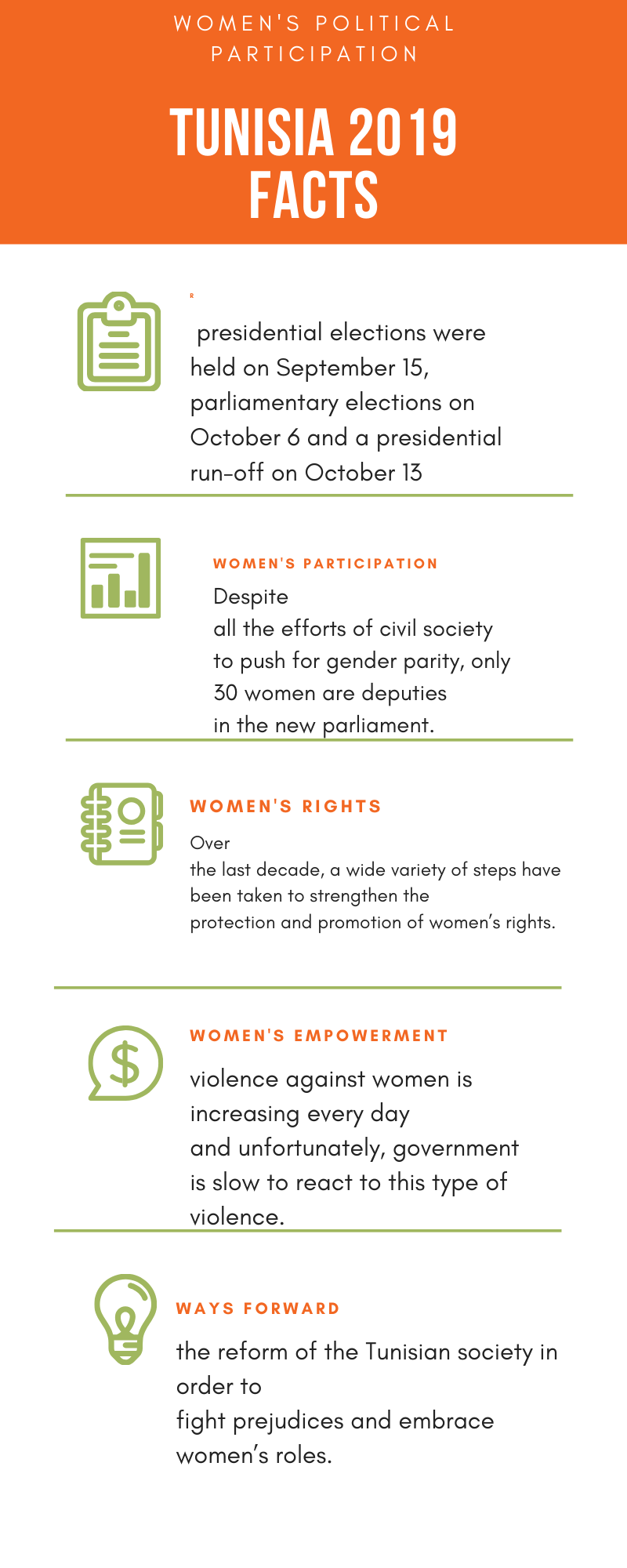In 2019, Tunisians voted in presidential elections on September 15, parliamentary elections on October 6 and a presidential run-off on October 13 as no candidate received a majority of the vote in the first round. Kais Saied won the second round with 72.7% of the vote.
Following the 2011 uprising, Tunisians opted for a mixed parliamentary-presidential system. Under the terms of the 2014 constitution, the parliament nominates a prime minister, who is then tasked with forming a government and running day-to-day affairs.
In general, women’s participation in parliament has increased over the last years across North Africa and Tunisia has the highest representation of women in parliament in the region and among Arab states.
Women’s political participation
In 1999, Tunisia introduced quotas for women in electoral lists, although they became legally binding in 2011. In 2014, Emna Mansour Karoui and Kalthoum Kennou became the first Tunisian women to run for president. After the election in 2014, women’s representation in parliament increased slightly to 31.3%. Notably, an impressive 4000 women ran for office in 2014. In the last presidential elections two females ran in the presidential race: Abir Moussi, leader of the anti-Islamist Free Destourian Party, and Selma Elloumi Rekik, leader of Al Amal party.
Despite all the efforts of civil society to push for gender parity, only 30 women are deputies in the new parliament, compared with the 80 women deputies in the 2014-2019 parliament. Τhe World Economic Forum’s 2018 report on the global gender gap found that Tunisian political parties had not adopted quota systems on a voluntary basis to promote women’s participation, and that also ranked the country 119th out of 149 countries in overall gender equality. There is still no official data available for women’s representation in politics after the last elections.
Over the last decade, a wide variety of steps have been taken to strengthen the protection and promotion of women’s rights. For instance, the interim government announced the withdrawal of reservations to the Convention on the Elimination of All Forms of Discrimination against Women (CEDAW) in 2011. In 2013, the Tunisian government adopted the National Action Plan for the Elimination of Violence against Women (NAPEVW). Nonetheless, reality for Tunisian women is not ideal. With the resurgence of Islamist ideologies in Tunisian society of which some view women as second-class citizens, violence against women is increasing every day and unfortunately, government is slow to react to this type of violence.
Conclusion
Tunisia has been making important steps to guarantee gender equality and to promote women’s rights. The main challenge now seems to be the reform of the Tunisian society in order to fight prejudices and embrace women’s roles.

